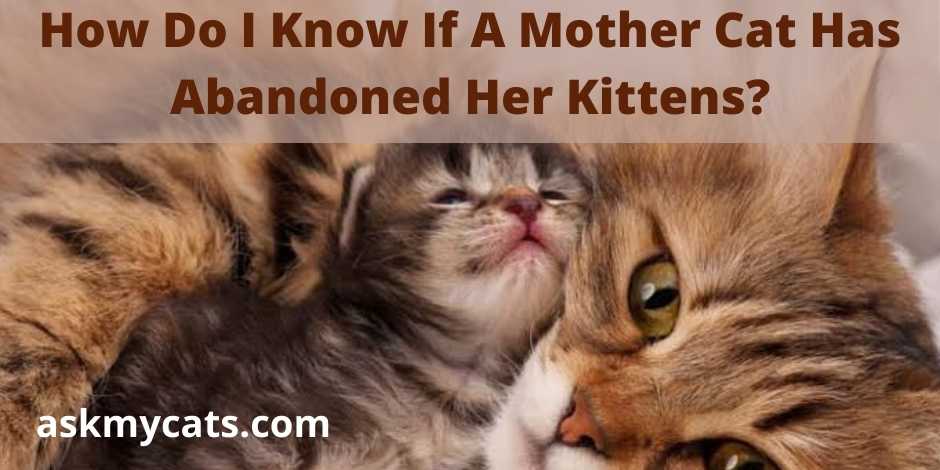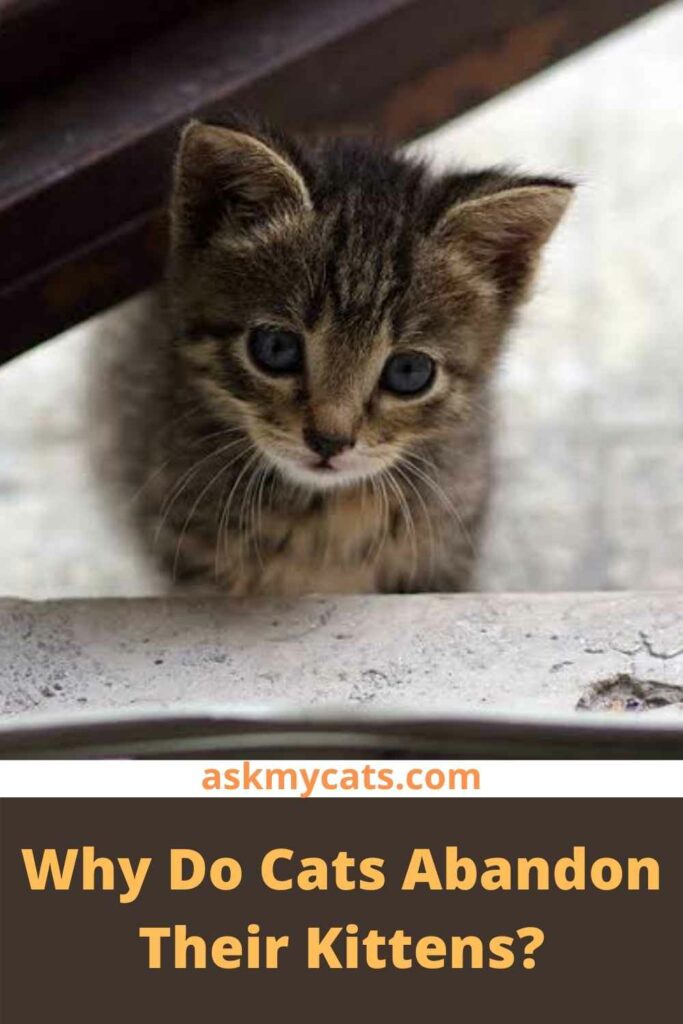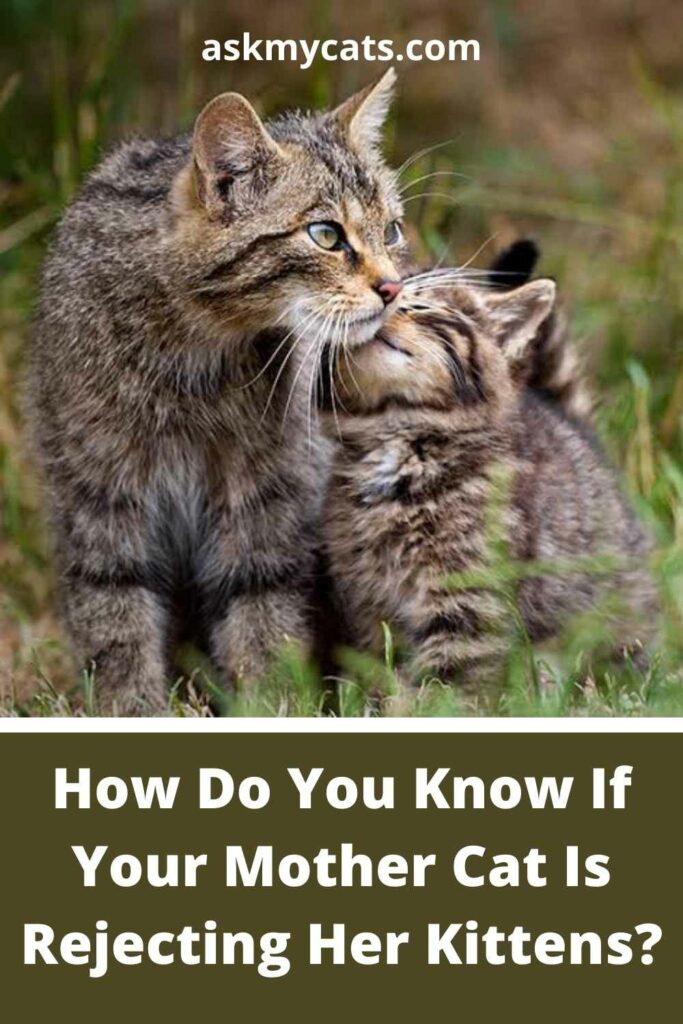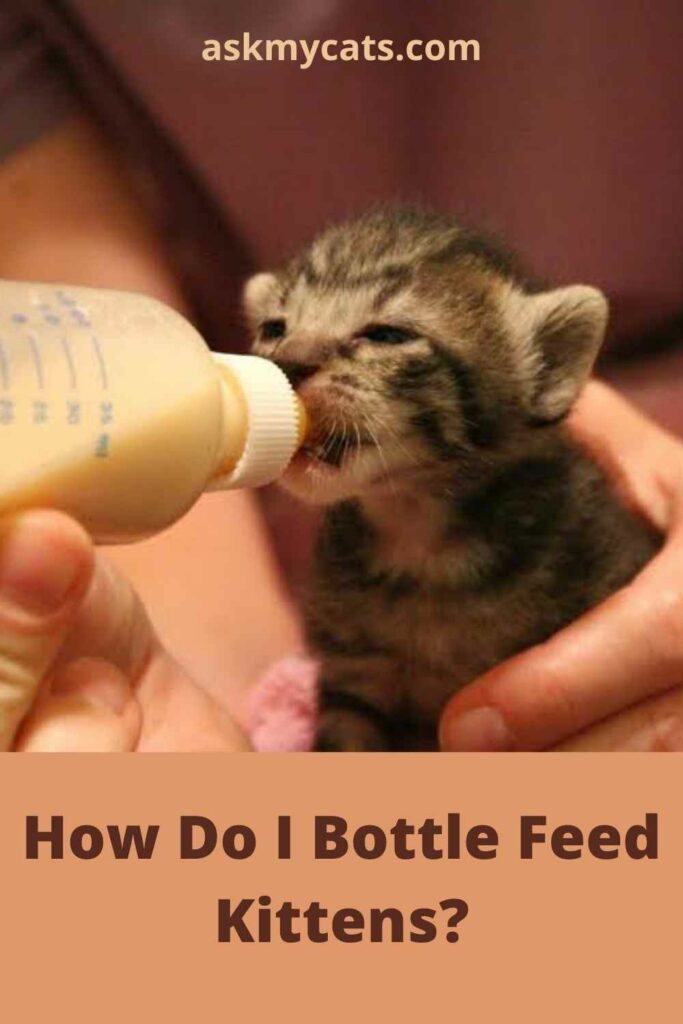Cats are often excellent moms who will devote their lives to defending their babies. However, every now and again, you’ll come across a litter of abandoned kittens.
A mother cat can abandon her kittens, which is sad. When it comes to the health of her kittens, a mother cat has very strong instincts, and she may reject them if she believes they are weak or sick. On the other hand, a mother may leave her kittens alone for an extended period of time in order to obtain food or a new place.
If you want to help abandoned kittens, keep reading. In this article, we discuss how to assess and provide the best care to an abandoned kitten.


Give Your Cat the Perfect Day
Get the Free Ebook!
Does A Mother Cat Abandon Her Kittens?
Mother cats generally abandon their kittens when they are mature enough to fend for themselves. Otherwise, hundreds of cats would follow them around, stealing their food and energy.
They get pregnant around twice a year and produce four kittens in each litter on average. That equates to eight kittens every year. That is just too much for anyone.
Why Do Cats Abandon Their Kittens?
Here are a few of the reasons a mother cat might reject or abandon her kittens before they’ve grown.

1. When Kittens Are Sick
Mother cats leave their ill kittens because they are unaware of veterinarians or antibiotics. She believes that if one of her kittens becomes ill, they will die.
Perhaps she wants to preserve her milk and energy for her other kittens, who have a greater chance of survival, or she simply cannot bear the thought of her young dying. As a result, wild cats leave their ill young in desperation.
2. Not A Motherly Cat
Every cat has its own personality. Some mother cats are more caring than others, while others are less nurturing. If a mother cat is not affectionate to her kittens, they will be rejected and abandoned. However, this is rare.
3. Leaving The Nest
To begin with, many people stumble upon litters of kittens outside and believe they’ve been abandoned when, in reality, the mother is nearby most likely hunting. To prevent predation, outdoor or stray mothers may spread their babies.
The mother is presumably nearby if the kittens appear to be well-fed, in a safe area, and fall asleep after a brief period of screaming. It’s advisable to keep an eye on a nest for a couple of hours to see whether she returns.
If she doesn’t, she might be sick and unable to return, or she could have been dead.
Kittens can also become lost or trapped in areas where mom can’t get them. This can occur both indoors and outdoors. So, if you notice a mother pacing about uncomfortably or a kitten whimpering, don’t hesitate to intervene.
Also, read about how long can a mother cat be away from her newborn kittens
4. Premature Motherhood
A very young mom who hasn’t developed maternal skills may act confused or disinterested. Some moms start out this way and then figure it out. Some mothers are unable to do so.
A disinterested mom may also have been traumatized during the birth if she was, for example, not in a safe place or had physical difficulty in labor. Her hyper-vigilance and nervousness might make it difficult for her to relax and lie down so the kittens can suckle.
5. Litter Size
A litter that is too big may also result in rejection. If there isn’t enough milk to go around for all of her kittens, the mom may reject a few to preserve milk for the rest.
This behavior is most likely to be seen within the first 24 hours following birth by a keen observer.
6. Mother Has Gone To Find Food
If the kitten has only been mewing for a short period of time, or if you see that its nest is tidy or that it naps happily, it is unlikely that it has been abandoned.
Its mother might be away from the nest on a long hunting expedition. It’s also conceivable that when her kittens were born, she divided and concealed them in different locations to decrease the likelihood of prey killing the entire brood. In any event, the mother will return in time.
You might also like to read about do mother cats miss their kittens
Will A Mother Cat Abandon Her Kittens If You Touch Them?
Every cat is unique, however, most cats will not abandon their kittens if they are touched. I’m not saying it can’t happen; I’m just saying it doesn’t happen very frequently, and I’ve never seen it happen.
However, you should always use caution while handling a cat, especially a wild kitten. Perhaps its mother is one of the few cats that will forsake her kittens if they are touched.
You might also like to know about will a mother cat kill her kittens if you touch them
How Do You Know If Your Mother Cat Is Rejecting Her Kittens?

A mother cat may refuse to care for certain kittens in her litter or may reject the entire litter. After assisting your cat with the birthing process, thoroughly monitor her behavior to ensure that any kittens she rejects may be cared for by you.
You might be able to persuade her to care for the rejected kittens under certain conditions.
A mother cat should start feeding her kittens one to two hours after birth. The milk produced by a mother after giving birth contains colostrum, a substance containing antibodies that help protect the kittens from sickness and provide them with adequate nutrition.
If you notice the mother ignoring specific babies and refusing to let them feed, she is rejecting those kittens.
Another symptom of rejection is when a mother takes one or more of the kittens away from the nest in order to isolate them. She may also hiss at the kittens or attempt to bite them.
A mother may reject a kitten that is cold to touch. Massage a chilly kitten’s body with a hot water bottle wrapped in a cloth to improve circulation. Try reintroducing a chilled kitten to its mother and seeing whether she accepts it.
A kitten grows in size on a daily basis, but if you see one that isn’t gaining weight or developing appropriately, the mother has most likely rejected it. Bottle-feeding is required for undersized or warm kittens that the mother has set aside and refuses to nurse.
It is common for a mother cat to refuse to nurse kittens after the age of four weeks. Kittens are weaned from the mother’s milk onto solid meals between the ages of four and eight weeks.
Excessive handling of kittens under 4 weeks may lead the mother to reject them since it eliminates the mother’s smell. Handle them for 10 to 15 minutes at a time while the mother cat supervises.
Take the rejected kittens and mother to a veterinarian for an examination to rule out medical problems, infections, or after-birth difficulties as the reason for the rejection. Hand-feed and care for abandoned kittens.
What Do You Do When A Mother Cat Rejects Kittens?
There are a few possible explanations for a mother cat refusing to milk her kittens. In rare instances, the mother cat will begin feeding and then discontinue. Alternatively, the mother cat may never start breastfeeding in the first place.
Some or all of the kittens may be rejected by the mother cat. She will not only refuse to milk the kittens, but she may also ignore them or act violently when approached by one.
If something like this happens, the mother and kittens should be taken to the veterinarian as soon as possible.
If you can figure out why a mother cat isn’t feeding her kittens, you could have a greater chance of convincing her to start nursing them. Alternatively, you may need to intervene and care for the kittens yourself. In any case, your veterinarian can assist you.
Remember to bring the mother and all of her kittens with you to the vet, regardless of which ones seem sick or not.
You may wish to try to get the mother cat to nurse again after you’ve seen your veterinarian and resolve any problems (only if recommended by your vet). If the mother cat is still unable or unwilling to nurse her kittens, continued bottle-feeding will be required.
Kitten milk should be given to kittens for at least the first four weeks after their birth. When they are around three weeks of age, you may start introducing kitten food. After the kitten starts eating on its own, you can progressively reduce the amount of milk you provide.
When it comes to kitten care, remember that your veterinarian is the finest source of knowledge. Inquire with your veterinarian about the amount and frequency of feedings, how to assist the kittens in urinating and defecating, and how to keep them clean and warm.
How Do I Bottle Feed Kittens?

If the mother cat refuses to nurse her newborn kittens at all, both the mother and the kittens should be taken to a veterinarian as soon as possible.
Meanwhile, you must discover a means to feed the kittens since they need to eat every few hours, with the exact frequency varying based on their age.
This is often accomplished by bottle-feeding kitten formula. It is also critical to provide newborn baby kittens motherly care. Keep them warm and assist them in urinating and defecating.
KMR, which stands for “kitty milk replacer,” is the most popular type of kitten formula. KMR is available in cans or cartons and can be purchased at most pet supply stores and on pet supply websites.
Other brands of kitten formula are also available. Cow’s milk and human infant formula are not nutritionally adequate for kittens and, if eaten for an extended length of time, can cause health issues and even death.
The formula may be given to the kittens using a tiny kitten feeding bottle. Many people, however, find that an eyedropper works best at first.
Newborn kittens will need to be bottle-fed every two hours or so. Gently warm the formula and give 1 teaspoon (5 mL) to each kitten. This amount is for newly born kittens. Inquire with your veterinarian about the appropriate feeding quantities as the kittens develop.
Frequently Asked Questions
How Long Should A Kitten Stay With Her Mother?
Kittens should ideally stay with their mother till they’re at least 12 weeks old. Mother cats are best equipped to look after their kittens.
Will Cats Eat Their Kittens If You Touch Them?
No, mother cats won’t eat their kittens if you touch them. They might dislike you touching their babies but they will not eat them.
What Is Fading Kitten Syndrome?
Fading Kitten Syndrome is sometimes referred to as “failure to thrive”. It happens when a kitten suddenly becomes ill or unresponsive, even if it was healthy previously.
Final Words
Please be patient and do all you can to help if you find a litter of kittens abandoned outside. While it’s difficult to resist a litter of cute, fuzzy kittens, sometimes letting the mother manage their care is the best option.
Also, if your cat is refusing to accept her newborn babies, consult a veterinarian to determine the best course of action.
If you have any more queries regarding these adorable furry little creatures, let us know in the comment section below!
